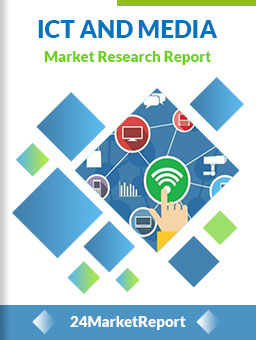
Download FREE Report Sample
Download Free sampleMARKET INSIGHTS
Global Fleet Consultancy Service market size was valued at USD 672 million in 2024. The market is projected to grow from USD 721 million in 2025 to USD 1.13 billion by 2032, exhibiting a CAGR of 7.9% during the forecast period.
Fleet consultancy services provide strategic guidance to organizations managing vehicle fleets, helping optimize operations through data-driven solutions. These services encompass fleet composition analysis, route optimization, cost reduction strategies, and regulatory compliance across transportation, logistics, and corporate sectors. With increasing complexity in fleet operations, businesses rely on consultants to implement telematics, fuel management systems, and sustainability initiatives.
The market growth is fueled by rising demand for operational efficiency, stringent emission regulations, and adoption of electric vehicles in corporate fleets. Furthermore, the integration of IoT and AI in fleet management creates new opportunities for consultancy services to deliver predictive analytics and automation solutions. Key players like ARI Fleet Management and Element Fleet are expanding their service portfolios through strategic partnerships, while digital transformation accelerates the shift toward cloud-based fleet optimization platforms.
Rising Fuel Costs and Regulatory Compliance Demands Accelerate Fleet Optimization Needs
The global fleet consultancy market is experiencing robust growth driven by the urgent need for cost optimization amidst volatile fuel prices. With diesel prices remaining 35% higher than pre-pandemic levels in most markets, companies are actively seeking expert guidance to improve fuel efficiency across their fleets. Fleet consultancy services leverage telematics data analytics to identify wasteful routing patterns, recommend optimal vehicle specifications, and implement driver training programs that can reduce fuel consumption by 15-20%. Additionally, tightening emissions regulations across North America and Europe are forcing fleet operators to consult experts about transitioning to alternative fuel vehicles while maintaining operational efficiency.
Technological Advancements in Fleet Telematics Create Demand for Expert Interpretation
To know more about market statistics, Download a FREE Sample copy
Modern telematics systems generate vast amounts of vehicle performance data that most organizations lack the expertise to fully utilize. Fleet consultancies bridge this gap by transforming raw telemetry into actionable business intelligence. The global telematics market, projected to exceed $100 billion by 2027, has created parallel demand for consulting services that can help operators maximize returns on their technology investments. Expert analysis of telematics data helps companies identify maintenance issues before breakdowns occur, optimize routing efficiency, and improve driver safety - with some consultancies demonstrating 30% reductions in maintenance costs and 25% fewer accidents for clients.
Corporate Sustainability Initiatives Drive Eco-Conscious Fleet Planning
Environmental responsibility has become a key driver in fleet management decisions, with 68% of Fortune 500 companies now having formal sustainability targets. Fleet consultancies play a crucial role in helping organizations navigate the complex transition to greener fleets while maintaining operational reliability. Services include total cost of ownership analysis for electric vehicles, charging infrastructure planning, and hybrid fleet deployment strategies. This trend is particularly strong in Europe, where carbon emission regulations are pushing many companies to completely reevaluate their fleet strategies with expert guidance.
High Implementation Costs Deter Small and Medium Enterprises
While large corporations readily invest in fleet consultancy services, many SMEs find the upfront costs prohibitive. Comprehensive fleet optimization projects typically require significant investments in telematics hardware, software platforms, and consultancy fees that can range from $50,000 to $500,000 depending on fleet size. This creates a substantial barrier for smaller operators, particularly in developing markets where capital is scarce. Many consultancies are responding by developing scaled-down service packages, but the value proposition remains challenging for cost-sensitive businesses.
Legacy Fleet Infrastructure Resists Rapid Transformation
The existing fleet ecosystem presents significant implementation challenges for consultancy recommendations. Many organizations operate aging vehicle inventories with limited connectivity capabilities, incompatible with modern telematics solutions. Additionally, entrenched operational processes and union contracts in some regions make it difficult to implement fundamental changes to driver schedules or maintenance protocols. These legacy constraints often require consultancies to develop phased implementation plans that delay full realization of benefits, reducing the perceived value of their services.
Data Security Concerns Hamper Telematics Adoption
As fleet consultancies increasingly rely on vehicle telemetry data, concerns about data privacy and cybersecurity are emerging as market restraints. Some fleet operators hesitate to share detailed operational data due to competitive concerns or fear of regulatory non-compliance. High-profile cybersecurity breaches in transportation systems have made companies particularly cautious about implementing networked fleet management solutions. Consultancies must invest heavily in secure data infrastructure and rigorous compliance protocols to overcome these concerns, increasing their operational costs.
Electrification Transition Creates Multi-Year Consulting Pipeline
The rapid shift toward electric vehicles represents perhaps the most significant growth opportunity for fleet consultancies. With global EV sales projected to grow at 20% CAGR through 2030, consultancies are developing specialized services to guide fleet operators through complex electrification decisions. These include detailed TCO analysis comparing electric and conventional vehicles, charging infrastructure planning, and battery lifecycle management strategies. Some consultancies now offer specialized EV transition roadmaps that serve as multi-year engagement frameworks, ensuring recurring revenue streams.
Emerging Markets Offer Untapped Growth Potential
While North America and Europe currently dominate the fleet consultancy market, emerging economies in Asia and Latin America present substantial growth opportunities. Rapid urbanization and e-commerce expansion are driving fleet modernization in these regions, with many operators seeking international expertise to leapfrog legacy systems. Local partnerships will be key to success, as consultancies must adapt their offerings to accommodate varied regulatory environments, infrastructure limitations, and business cultures. Some consultancies are already reporting 40%+ year-over-year growth in these markets.
AI-Powered Predictive Analytics Opens New Service Verticals
Advances in artificial intelligence are enabling consultancies to offer sophisticated predictive maintenance and demand forecasting services. By analyzing historical fleet data, AI models can predict component failures weeks in advance and optimize spare parts inventory with 90%+ accuracy. Some consultancies now offer continuous optimization services powered by machine learning algorithms that automatically adjust routing and scheduling based on real-time conditions. These cutting-edge services command premium pricing and help differentiate consultancies in an increasingly competitive market.
Talent Shortage in Emerging Fleet Technologies
The fleet consultancy industry faces a critical shortage of professionals skilled in emerging technologies like electric vehicle systems, advanced telematics, and AI-driven analytics. Many consultancies report difficulty finding candidates with both technical expertise and practical fleet operations experience. This talent gap is particularly acute for consultancies expanding into electric fleet services, where qualified experts command premium salaries. The problem is expected to worsen as demand for electrification consulting grows 50% faster than the overall market.
Demonstrating Consultancy ROI in Volatile Economic Conditions
Economic uncertainty makes it increasingly challenging for consultancies to demonstrate clear return on investment for their services. Fleet operators facing budget pressures scrutinize consulting expenditures more carefully, demanding detailed cost-benefit analyses before engaging services. This is particularly true for strategic consulting projects where benefits may take years to materialize. Consultancies must develop more sophisticated performance measurement frameworks and consider outcome-based pricing models to address this challenge.
Integration Challenges with Diverse Fleet Technologies
The proliferation of fleet management technologies creates significant integration challenges for consultancies. Most large fleets operate a patchwork of telematics systems, maintenance platforms, and scheduling tools from different vendors, making holistic optimization difficult. Consultancies must maintain expertise across dozens of software platforms while developing integration strategies that don't require complete system overhauls. This technical complexity increases project timelines and costs, potentially alienating cost-conscious clients.
Online Service Segment Gains Traction Due to Real-Time Fleet Monitoring and Analytics
The market is segmented based on type into:
Online Service
Subtypes: Fleet telematics, GPS-based tracking, AI-powered optimization tools
Offline Service
Large Enterprises Dominate Due to Complex Fleet Operation Needs
The market is segmented based on application into:
SMEs
Large Enterprises
Operational Efficiency Consulting Leads As Companies Seek Cost Optimization
The market is segmented based on service type into:
Strategic Fleet Planning
Operational Efficiency Consulting
Technology Implementation
Regulatory Compliance
Others
Commercial Vehicles Segment Holds Major Share Due to Logistics Industry Demand
The market is segmented based on vehicle type into:
Passenger Vehicles
Commercial Vehicles
Subtypes: Light commercial vehicles, Heavy trucks, Special purpose vehicles
Electric Fleet Vehicles
Consulting Firms Leverage Technology Integration and Strategic Partnerships to Gain Market Share
The global fleet consultancy service market exhibits a fragmented competitive landscape, with a mix of established players and emerging consultancies vying for market dominance. While North American firms currently hold approximately 42% of the market share as of 2024, European and Asian providers are rapidly expanding their footprint through strategic acquisitions and technology partnerships.
ARI Fleet Management and Element Fleet maintain leading positions through their comprehensive service offerings that combine telematics integration, lifecycle cost analysis, and sustainability consulting. These market leaders have notably strengthened their positions through recent acquisitions - ARI's purchase of Donlen Corporation in 2021 and Element's partnership with Geotab for enhanced data analytics capabilities.
Emerging players such as LetsTalkFleet and Matrix Consulting are disrupting traditional models by specializing in electrification consulting and AI-powered route optimization. These firms are gaining traction by addressing pressing industry needs, particularly among SMEs looking for cost-effective digital transformation solutions.
The competitive environment continues to intensify as consulting firms invest heavily in proprietary technologies. Omnitracs recently launched its predictive maintenance analytics platform, while Merchants Fleet introduced a fleet optimization tool integrating real-time emissions tracking. Such innovations are reshaping service standards and forcing competitors to enhance their technological capabilities.
ARI Fleet Management (U.S.)
Spectrum Tracking (U.K.)
CompassCom Software (U.S.)
Element Fleet (Canada)
Enterprise Holdings (U.S.)
Fleet Group (Australia)
Matrack (India)
Mercury Associates (U.S.)
Merchants Fleet (U.S.)
Omnitracs (U.S.)
CLM Fleet Management (U.K.)
Sixt Leasing (Germany)
Fleet Consulting (Netherlands)
Hennecke Fleet Consulting (Germany)
LetsTalkFleet (U.S.)
Wheels (U.S.)
Fleet Counselor (U.S.)
MCB Consulting (South Africa)
enVista (U.S.)
Matrix Consulting (Canada)
Jon Burdekin Fleet Consulting (Australia)
The global fleet consultancy service market is experiencing significant transformation through the adoption of Artificial Intelligence (AI) and Internet of Things (IoT) technologies. Advanced analytics powered by AI allows for predictive maintenance, fuel efficiency optimization, and real-time route planning, reducing operational costs by an estimated 15-25% for fleet operators. IoT-enabled telematics systems provide granular data on driver behavior, vehicle health, and cargo monitoring, enabling data-driven decisions that enhance fleet performance. Market projections indicate that over 65% of commercial fleets will integrate AI-based fleet management solutions by 2027, creating robust demand for consultancy services specializing in these technologies.
Sustainability and Electrification Initiatives
Environmental regulations and corporate sustainability goals are accelerating the shift toward electric and alternative fuel vehicles (AFVs) in commercial fleets. Governments in the EU, North America, and Asia are offering subsidies to companies transitioning to low-emission fleets, with consultancy firms playing a pivotal role in assessing feasibility, cost-benefit analysis, and infrastructure planning. Reports indicate that the electric commercial vehicle market is expected to grow at a CAGR of 32% between 2024 and 2030, intensifying the need for expert guidance on fleet electrification strategies.
The exponential growth of e-commerce and last-mile delivery services has increased the complexity of urban fleet operations, spurring demand for specialized consultancy solutions. Optimizing delivery routes, managing mixed fleets of EVs and conventional vehicles, and implementing micro-fulfillment strategies require tailored advisory services. The global last-mile delivery market is projected to surpass $200 billion by 2031, with fleet consultancy firms increasingly supporting logistics providers in scaling operations efficiently while minimizing costs. Additionally, dynamic routing software and crowdshipping models are being deployed through consultancy partnerships to address same-day delivery challenges.
North America
The North American fleet consultancy market is the most mature, driven by technological advancements and stringent regulatory requirements around fleet efficiency and emissions. The U.S. accounts for over 75% of the regional market, with major players like ARI Fleet Management and Mercury Associates offering comprehensive services. Businesses increasingly adopt telematics and AI-driven analytics to optimize fleet operations, reduce fuel costs, and comply with EPA and DOT regulations. A key driver is the Infrastructure Investment and Jobs Act, which has allocated funds for transportation modernization, indirectly boosting demand for consultancy services. Additionally, the rise of electric vehicle (EV) fleets in corporate and logistics sectors has spurred consultancy demand for transition strategies and charging infrastructure planning.
Europe
Europe's fleet consultancy market thrives on strict sustainability regulations and high operational efficiency standards. Countries like Germany, the U.K., and France lead in adoption, supported by EU mandates for zero-emission commercial fleets by 2035. Consultancies here focus on electrification, route optimization, and compliance with GDPR and Euro 7 emission norms. The region also sees strong demand from logistics firms managing cross-border operations, requiring expertise in multi-country fleet regulations. Mergers, such as Sixt Leasing's partnership with consulting firms, highlight the growth of integrated fleet solutions. However, high service costs and complex labor laws pose challenges for smaller operators.
Asia-Pacific
APAC is the fastest-growing market, with China and India contributing over 50% of regional demand. Rapid urbanization, e-commerce expansion, and government initiatives like India’s Gati Shakti plan fuel the need for efficient fleet management. While cost sensitivity drives preference for basic consultancy services, multinational logistics firms increasingly invest in predictive maintenance and fuel management solutions. Japan and South Korea lead in adopting autonomous fleet technologies, creating niche opportunities for specialized consultancies. However, fragmented regulations and underdeveloped infrastructure in emerging markets slow large-scale deployments.
South America
The market here is nascent but growing, particularly in Brazil and Argentina, where agribusiness and mining sectors rely heavily on freight fleets. Consultancies cater to fleet downsizing and cost-reduction strategies amid economic instability. Regulatory gaps and fuel price volatility push companies toward local consultancy firms with regional expertise. While demand for telematics is rising, adoption lags behind due to budget constraints. Long-term potential lies in infrastructure projects, such as Brazil’s road modernization program, which could boost fleet service demand.
Middle East & Africa
This region shows uneven growth, with the UAE, Saudi Arabia, and South Africa dominating due to logistics hubs and oil/gas sector needs. Consultancies here assist in fleet standardization and operator training, especially for heavy-duty vehicles. Government-led smart city projects (e.g., Saudi Vision 2030) are accelerating demand for digitized fleet solutions. However, political instability in parts of Africa and reliance on informal transport networks limit market expansion. Partnerships with global firms, like UAE’s engagement with Wheels Inc., signal gradual maturation.
This market research report offers a holistic overview of global and regional markets for the forecast period 2025–2032. It presents accurate and actionable insights based on a blend of primary and secondary research.
✅ Market Overview
Global and regional market size (historical & forecast)
Growth trends and value/volume projections
✅ Segmentation Analysis
By product type or category
By application or usage area
By end-user industry
By distribution channel (if applicable)
✅ Regional Insights
North America, Europe, Asia-Pacific, Latin America, Middle East & Africa
Country-level data for key markets
✅ Competitive Landscape
Company profiles and market share analysis
Key strategies: M&A, partnerships, expansions
Product portfolio and pricing strategies
✅ Technology & Innovation
Emerging technologies and R&D trends
Automation, digitalization, sustainability initiatives
Impact of AI, IoT, or other disruptors (where applicable)
✅ Market Dynamics
Key drivers supporting market growth
Restraints and potential risk factors
Supply chain trends and challenges
✅ Opportunities & Recommendations
High-growth segments
Investment hotspots
Strategic suggestions for stakeholders
✅ Stakeholder Insights
Target audience includes manufacturers, suppliers, distributors, investors, regulators, and policymakers
-> Key players include ARI Fleet Management, Element Fleet, Merchants Fleet, Wheels, Enterprise Holdings, Omnitracs, and CLM Fleet Management, among others.
-> Key growth drivers include rising demand for fleet optimization, data-driven decision-making, globalization of logistics operations, and outsourcing trends in fleet management.
-> North America currently leads the market, while Asia-Pacific is expected to witness the fastest growth due to expanding logistics sectors in emerging economies.
-> Emerging trends include integration of AI for predictive analytics, electric vehicle fleet transition consulting, and sustainability-focused fleet optimization strategies.

Speak to our Custom Research Team and get the Custom Research in a budget
Custom ResearchFrequently Asked Questions ?
A license granted to one user. Rules or conditions might be applied for e.g. the use of electric files (PDFs) or printings, depending on product.
A license granted to multiple users.
A license granted to a single business site/establishment.
A license granted to all employees within organisation access to the product.
Upto Working 24 to 48 hrs
Upto 72 hrs max - Weekends and Public Holidays
Online Payments with PayPal and CCavenue
Wire Transfer/Bank Transfer
Hard Copy




 Industry Market Size
Industry Market Size SWOT Analysis
SWOT Analysis Industry Major Players
Industry Major Players Revenue Forecasts
Revenue Forecasts Historical and Forecast Growth
Historical and Forecast Growth Profitability Analysis
Profitability Analysis
























